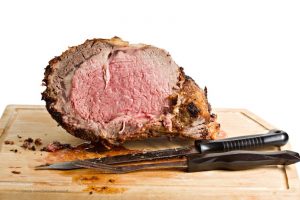Two public interest groups are the latest to add their voices to an international chorus of concern about the feed additive ractopamine. The Center for Food Safety and the Animal Legal Defense Fund have filed a petition with the U.S. Food and Drug Administration (FDA) calling for the agency to reduce allowable levels of the drug and to conduct a comprehensive study of its effects on human and animal health. The petition comes on the heels of Russia’s December announcement that will add its name to the list of roughly 160 countries that ban or restrict ractopamine, including China, Taiwan and every member nation in the European Union.
 Manufactured by Elanco, a division of Eli Lilly, ractopamine goes by different names for different animals applications: Paylean for pigs, Optaflexx for cattle and Tomax for turkeys. It’s used as an additive in finisher feeds- what food animals are fed during their last days, to accelerate weight gain and promote leanness in meat. In 2000, it was approved for use in animal feed by the US Food and Drug Administration (FDA) which relied heavily on studies conducted by Elanco, according to the Center for Food Safety.
Manufactured by Elanco, a division of Eli Lilly, ractopamine goes by different names for different animals applications: Paylean for pigs, Optaflexx for cattle and Tomax for turkeys. It’s used as an additive in finisher feeds- what food animals are fed during their last days, to accelerate weight gain and promote leanness in meat. In 2000, it was approved for use in animal feed by the US Food and Drug Administration (FDA) which relied heavily on studies conducted by Elanco, according to the Center for Food Safety.
Fed to an estimated 60 to 80 percent of pigs raised for meat in the US, ractopamine works by simulating a stress hormone, which, obviously, increases stress levels in the pig, increases heart rate and negatively impacts metabolic functions and a host of other problems. (Studies here, and here .) And though it’s supposed to wear off quickly, a recent Consumer Reports study found traces of the drug in one out of every five pork products tested.
“More pigs have been adversely affected by ractopamine than by any other animal drug—over 160,000, by the FDA’s own calculations,” says Stephen Wells, executive director of the Animal Legal Defense Fund. “The effects of ractopamine are cruel and completely avoidable. At a time when consumers are increasingly demanding more humane treatment of animals slaughtered for the meat industry, the United States should be at the vanguard of strong animal protections, rather than behind the international curve.”
And the stress doesn’t end when the pig’s life does, as Donald Broom, a professor at the University of Cambridge’s department of veterinary medicine, explained at a forum to discuss why the EU has banned the drug last year in Taipei. According to Broom, research shows that humans who eat meat from animals treated with the drug have increased anxiety.
“The continued use and abuse of ractopamine in our food supply needs to be put in check,” said Elisabeth Holmes, staff attorney at Center for Food Safety. “FDA must do its job of assessing risks, questioning health impacts, and providing better solutions for our food system. American families and, potentially, the nation’s economy are at risk.”




